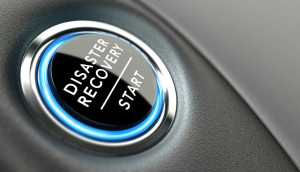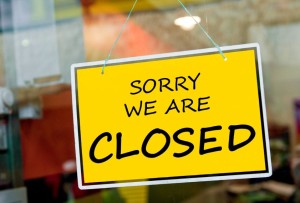 How equipped is your business to deal with a disaster? Do you have a plan in place to resume your business operations? Disasters come in all shapes and forms, including natural disasters such as floods, earthquakes and tornadoes or those caused by humans, such as train derailments or acts of terrorism. Your business could suffer property damage, pollution damage, loss of data and loss of income, but if you have a plan in place, your business is more likely to survive.
How equipped is your business to deal with a disaster? Do you have a plan in place to resume your business operations? Disasters come in all shapes and forms, including natural disasters such as floods, earthquakes and tornadoes or those caused by humans, such as train derailments or acts of terrorism. Your business could suffer property damage, pollution damage, loss of data and loss of income, but if you have a plan in place, your business is more likely to survive.
Large companies have risk managers or consultants who handle disaster preparation and recovery, but if you are a small business owner, you may have to handle this task yourself. A disaster recovery plan outlines important procedures to protect your business after a disruption. When designing a disaster recovery plan, consider these important factors:
- You should have an emergency notification system in place to notify employees of the disaster and if, when and where they should report to work.
- If your business will be closed, you must notify employees, customers and suppliers how long you will be closed.
- Notify all parties if you will be resuming operations at a temporary location.
- Have backup suppliers in place if your primary suppliers are also affected by the disaster.
- Have contact information for your insurance carrier and policy information on hand so you can report any claims promptly.
- Compile a list of your most important contact names and telephone numbers (FEMA, local emergency agencies, financial institutions, contractors, suppliers, law enforcement, and more.)
- Have a back-up power supply and communications system.
Before a disaster strikes, make sure you are aware what your business insurance covers. You may want to consider Business Interruption Insurance, which could help your business get through a disaster until you can resume normal operations. Have questions? We can answer them! https://accurateprotection.com/

 A loss from an unexpected event or a natural disaster can leave your business at a standstill. How do you protect your livelihood? After a disaster, you have so many things to consider—business expenses, employee salaries, vendor obligations and other operating expenses. If you are not prepared in advance, you may have to close your doors, at least temporarily. Business interruption insurance can give you peace of mind that your business can continue normal operations after an unexpected loss.
A loss from an unexpected event or a natural disaster can leave your business at a standstill. How do you protect your livelihood? After a disaster, you have so many things to consider—business expenses, employee salaries, vendor obligations and other operating expenses. If you are not prepared in advance, you may have to close your doors, at least temporarily. Business interruption insurance can give you peace of mind that your business can continue normal operations after an unexpected loss.